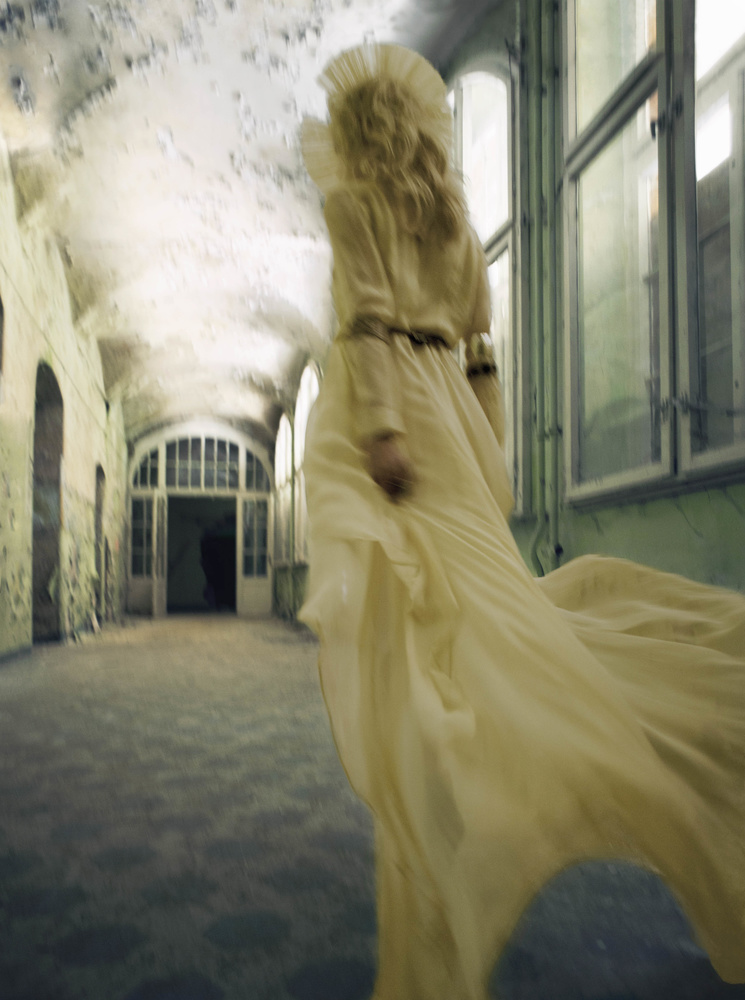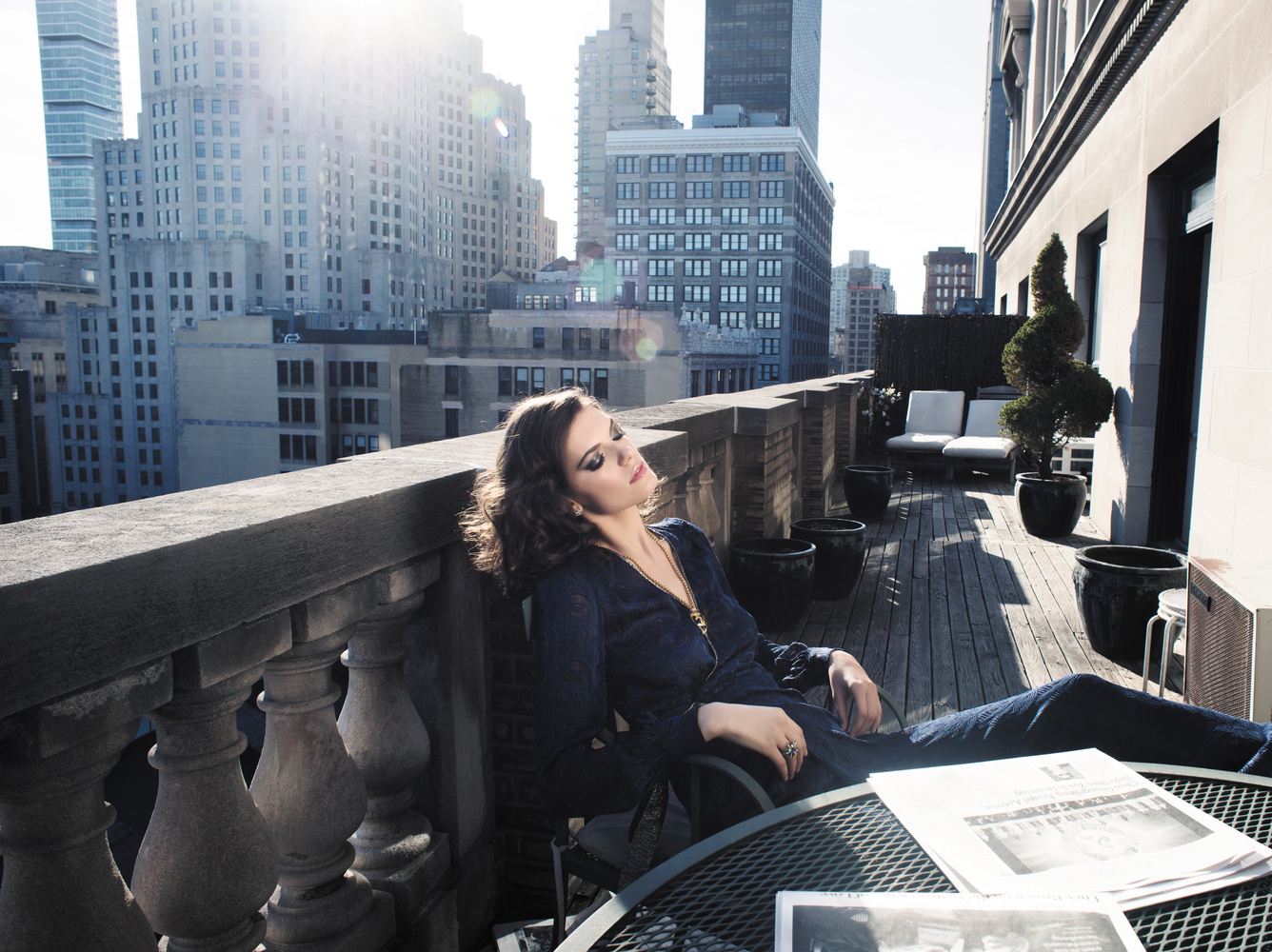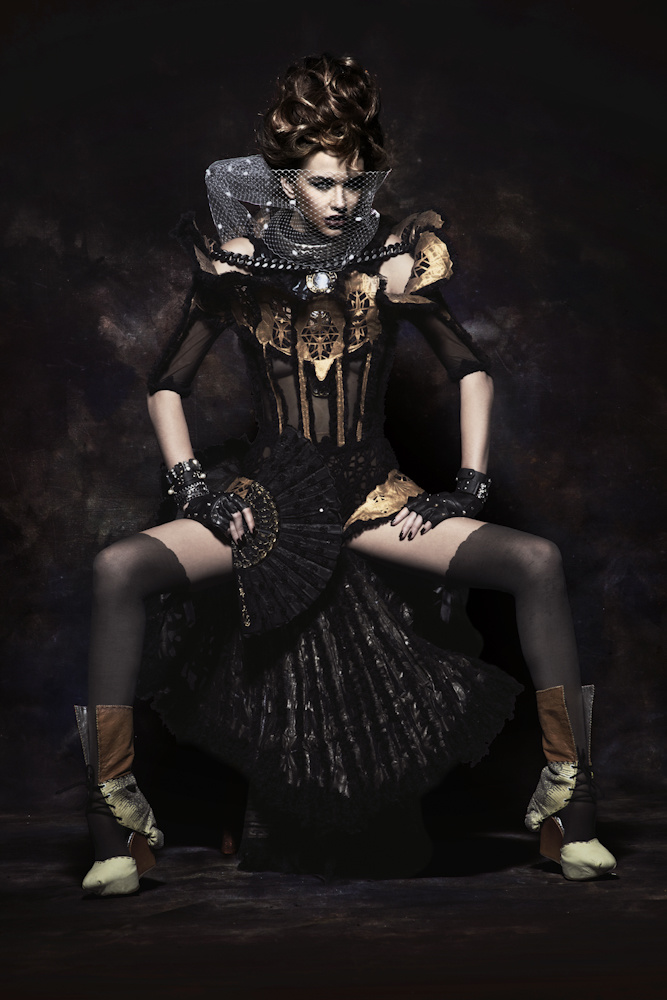Melissa Rodwell has been there, done it and got the t-shirt. A thirty year veteran of the world of fashion photography, she has paid her dues and then some. She has seen the trends come and go, and now has the knowledge and experience to help those just starting out. Anyone interested in fashion photography, or simply how to survive as a professional photographer will benefit from this frank and exclusive interview.
This week, on Wednesday October 15th, Melissa is making a unique appearance in LA at the “Stand Out Photographic Forum”, a giant, free expo with some incredible keynote speakers (use the code FSTOPPERS for free entry).
For those of us unable to attend her talk, this interview is really a unique insight into some of her experiences, and how it translates into a powerful resource for today’s photographer looking to break into the world of fashion. There has been so much change in recent times, that it can truly be daunting for anyone looking to break into this hyper-competitive segment of the professional photography market.

Copyright Melissa Rodwell
As I talk to her on the phone, she is telling me about the moment she discovered a photograph by Helmut Newton and how it changed her forever, taking her on a thirty year career through fashion to where she is today.
It’s an incredible story. In a day and age where we change our mind every thirty seconds, the idea that a point in time can lead can inspire enough in a person to lead them on a thirty year career is hard to really fathom.
As we talk, I realize it’s actually her skills outside of the purely photographic and technical that have no doubt helped support her journey - her empathy with the young photographers today and with the models she has shot; her dogged determination and huge amount of resilience in the face of rejection; working hard as a young woman in a male dominated industry. These are all key ingredients that go into her longevity.
In this frank interview, Melissa gives us the benefit of decades of insight and experience. She outlines what she is trying to do through her online resource, The Breed, a website packed full of resources aimed at supporting the new breed of up-and-coming fashion photographers.
Whether you are a fashion photographer or not, her wealth of experience and insight can help each of us in our own unique way on our own journeys as image makers today.

Copyright Melissa Rodwell
Succeeding As A Fashion Photographer Today
Fstoppers: What would you say are essential ingredients for someone who wants to start out in the world of fashion photography today?
Melissa: In any competitive industry, you have to have a strong passion because the ups and down are going to be there, especially now in fashion because the market is so flooded and saturated with photographers. There are more photographers than there is work, so being passionate and having a love of fashion, it’s history, an interest in costume design, how garments are made and so on, is critical.
A good social media and business understanding is incredibly important today too.
Fstoppers: What are the one or two main problems you see in fashion photographers that you feel they need to work on, in order to have a shot at being successful in today’s market?
Melissa: I don’t see any styling going on, like sometimes it’s almost nothing about the clothing.
Everything I see is half naked girls. Where is the fashion?
If the aim is to shoot for Maxim or Playboy, then these photographers probably have a good start, but it’s fashion photography, and I really want to see more fashion. I see less and less all the time, and it’s become extremely disappointing. My stylist is the most important part of my team.
It also takes a long time to develop your eye, so young photographers really need to shoot a lot in the early years when starting out. That should be the focus. Sure, you can play with an image in Photoshop and create something half decent, use social media to get a ton of likes but that doesn’t mean you’re necessarily a good photographer, or a good fashion photographer.

Copyright Melissa Rodwell
Starting Out & Developing Your Skill Set
Fstoppers: Can you describe the “transformative moment” when you discovered fashion photography and how it set the precedent for a thirty year long career that continues today?
Melissa: I was 17 and saw Helmut Newton’s work for the first time and was blown away. I basically lived a lot in an imaginary world and got by through high school by day dreaming. I also had this sense of wanderlust, and desire to travel. His pictures took me to that fantasy world instantly. Everyone and everything looked amazing and I just wanted to be in that world.
I was making editorials when I was 9 or 10, cutting up copies of Vogue. I knew I wanted to be involved in that kind of world. When I saw Helmut’s work I knew I wanted to be a photographer.

Copyright Melissa Rodwell
Fstoppers: How would you describe your style of fashion photography?
Melissa: My work has always been called “edgy -“European-editorial”, “gothic”, “rock ‘n roll-couture”; it all comes from being heavily influenced by music, particularly rock and roll. l think this has strongly influenced how I shoot. I saw bands like the Sex Pistols and Led Zeppelin play. My work is a little darker, and it also relates to the fact I’ve had such an amazing life, with lots of ups and downs, and I think my work shows that.
I don’t do “lifestyle”, I don’t shoot happy teenagers on a beach.
Fstoppers: Where does good directing come from, and how did you develop your strong directing skill set?
Melissa: It takes time, but the thing I’ve learned over the years is that confidence is infectious. If I’m confident, the model is confident. Sometimes you have to show people more specifically – show them how to move, or pose, show them a mood board, or just explain what I’m going for in the shoot, but you begin to develop this rhythm. You have to be a bit of a bit of psychologist.
The bottom line is, if I’m confident, then they’ll trust me, and good direction and collaboration follows.
In terms of building confidence, well, there is plenty of rejection in this business, and it shows a great amount of passion when you can keep getting rejected but you brush your self off and just get on with it. I’ve dealt with a ton of rejection and still do, but you get a thick skin from it. Confidence is a huge attribute, just remember there is a fine line between being confident and being cocky.
Funnily enough, I was shy in the beginning. I’m definitely more comfortable behind the camera. I don’t push the models because I’m sensitive to that. I know people that would scream at the models, to do the whole “break them down to build them up” thing, and I don’t believe in that at all.

Copyright Melissa Rodwell
Fstoppers: As an agency-represented artist, what would you advise those photographers who might be looking to be represented?
Melissa: Having an agent is like being married. You’re trusting them with your money and with putting you forward in the best way possible. You need an agent you trust, that you like, and that you get along well with. It’s a two way street, and you have to take their advice sometimes.
Today, agencies today don’t take on photographers like they used to, they aren’t really looking to build and develop them, they are looking for photographers who are billing a lot or have a great social presence and booking jobs through this.

Copyright Melissa Rodwell
Social Media, Longevity & The Future
Fstoppers: Hypothetically, what would you say is more important - to have a strong social media presence with simple imagery, or to be creating wonderful, unique images but relatively little social media penetration?
Melissa: I’m the wrong person to ask about this! Personally, I think you better have unique images, but the whole social media thing is crazy right now. Here’s an example - Ruven Afanador (SIde note: Afanador is one of the top names in fashion and celeb portrait photography) has as many followers as I do, which is insane! I have seen kids who have 100,000 followers whose images are really bad. It’s crazy.
I’ve gotten a big job through Facebook so it does happen, but I’ve never gotten a job through Instagram. I have 73,000 Facebook fans, and I have no idea how.
I had lunch with one of the bookers from a huge modeling agency recently who said girls are now getting booked not on what they look like, but based on their Instagram follow ship and social media presence.

Copyright Melissa Rodwell
Fstoppers: How have you managed to maintain your longevity with the notoriously fickle world of fashion photography?
Melissa: It’s really my love for shooting and for fashion, but I do feel like it’s getting harder and harder. I also love writing, and I’ve dedicated the last year to The Breed. I started the resource because I really wanted to give something back.
It’s really very hard financially now too – you have to pay for everything. Budgets have been slashed from what they were. There are twenty photographers now taking 90% of the top jobs. Meisel, Mert and Marcus - to break into that inner circle takes more than hard work, it’s almost impossible to do it.

Copyright Melissa Rodwell
Fstoppers: Do you feel being female has helped or hindered you in the industry?
Melissa: I think in America it’s hindered me, but everywhere else in the world it’s been accepted. In Australia I did really well, in Europe I did really well, but in the States it’s been different, it’s just been tough for me here. There used to be so many more well known, female fashion photographers who were making it, Deborah Turberbville and Sarah Moon for example. You don’t see it so much anymore, and I don’t know why that is.
Fstoppers: What do you hope to achieve with the work going into the Breed website?
Melissa: I’d like to leave behind a stamp of knowledge that I’ve accumulated over the years, the appreciation and love for fashion, with an aim to keep the work as high a quality as possible. To really help today’s fashion photographers compete in these really incredibly tough, competitive markets.

Copyright Melissa Rodwell
Fstoppers: How do you see the role of video evolving in the fashion industry? Do you have any desire to do more within the world of motion?
Melissa: I’ve had an amazing life and as we speak, I’m writing and directing short films that have nothing to do with fashion. They are short films of different episodes of my life, influenced by friends and my life, and it’s incredibly exciting for me.
I’m going to be submitting to festivals. I want to tell meaningful stories, stories of substance. After they’ve been submitted and showcased, they’ll be available to the public and I’ll have a dedicated website built. I’ll be announcing more in 2015.
Fstoppers: Any advice on how to stay focused while dealing with the financial highs and lows of fashion photography?
Melissa: I don’t know how young people they are doing it today. With constantly needing to invest in gear, paying to try to get published, smaller and smaller budgets I just don’t understand how they make it work.
I think you really have to diversify, you have to have a couple of different tools that you can utilize – maybe being able to shoot fashion videos, do some art direction, or offer package deals for young designers (to do their stills and video together, with some BTS, for instance).
Fstoppers: What are you hoping attendees will take away from your talk at the Stand Out Photographic Forum?
Melissa: I want to try and provide some enthusiasm for those out there that are having a hard time.
I think younger photographers, in particular, can get down trodden. It’s really tough out there. I want to try and show how it’s been hard for me, that I still get rejected, but that I’m in the trenches fighting too, that I love it and we’re in it together.

Copyright Melissa Rodwell
Special thanks to Melissa for her time and permission for these images. If you’re in Los Angeles this week you can catch her talk tomorrow, Wednesday October 15th at the Stand Out Photographic Forum.







I got the chance to meet Melissa in Amsterdam a few years ago and then again in New York a year later. I must say, she is a wonderful person to talk to. You may be nobody but she will take the time to listen. Melissa, if you're reading this, thank you! I'm sure our paths will cross again :)
A fascinating interview. The work of Melissa Rodwell is outstanding. Sad female photographers aren't recognised equally in the US. I don't think age or gender is relevant at all to photography.
RIP Melissa, her tutorial on Fashion Photography was the first one I owed and I still review it every now and then